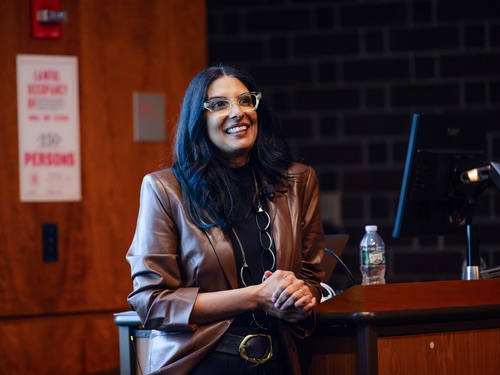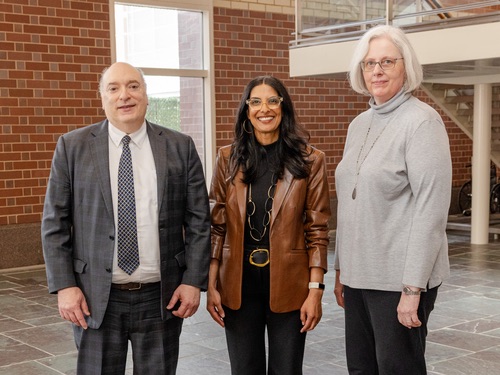Dr. Dena Dubal, a neurologist at UCSF and this year’s Mary and Joseph A. Pignolo, Sr. Lectureship in Aging Research Awardee, is leading groundbreaking research on Klotho, a protein identified as a longevity factor.
Dr. Dubal's work reveals that Klotho not only extends lifespan but also enhances brain resilience, improving cognition in both healthy and diseased brains. In animal models of aging, Alzheimer's, and Parkinson's, increasing Klotho levels—either genetically or through protein injections—boosted memory and learning by strengthening synaptic function, particularly through NMDA receptor pathways.
During her lecture on the topic, Dr. Dubal explained that these benefits occur even when Klotho is administered peripherally, without crossing the blood-brain barrier, suggesting it acts through indirect signaling mechanisms. Recent studies in non-human primates showed similar cognitive enhancements, a major step toward potential human application. As clinical trials are being explored, Klotho stands out as a resilience factor—not targeting a single disease, but bolstering the brain’s ability to withstand degeneration. This shift in strategy could reshape how we approach cognitive aging and neurodegenerative disease.
“We hope that this breadth of studies -- mechanistic and across organisms -- may help us toward developing Klotho as a therapeutic to induce resilience against cognitive decline, Alzheimer's disease, Parkinson's disease…,” said Dr. Dubal.
“What if in our future therapeutics Klotho was part of a cocktail that – in addition to taking away amyloid – induced resilience and the ability to stave off toxicity from multiple proteins even beyond a beta and tau, maybe alpha-synuclein and others.”
Whether Klotho itself becomes a new treatment or leads to the discovery of other resilience-boosting strategies, Dr. Dubal believes this line of research is paving the way for new therapies to protect the aging brain and combat neurodegeneration. Her work exemplifies a bold and hopeful vision: that by understanding and leveraging the biology of aging, we can build a future where living longer doesn’t come at the cost of cognitive decline.
Dr. Dubal says that “at the end of the day, we are digging deep to understand the mechanisms of how we live longer and apply them to the brain to see if they help us to live better.”


The Mary and Joseph A. Pignolo, Sr. Award and Lectureship in Aging Research is awarded as part of the Institute on Aging (IOA) Visiting Scholar series to annually recognize an outstanding contribution to the field of biogerontology. Created by geriatrician and gerontologist Robert J. Pignolo, M.D., Ph.D. in honor of his mother and father, award recipients are invited to present a lecture highlighting their work in basic aging research and receive a prize to recognize their exceptional contributions.
▶️ Watch Now: Dr. Dena Dubal discusses “Longevity factor Klotho, Aging, and Neurodegenerative Disease” (runtime: approx. 5.5 minutes):

